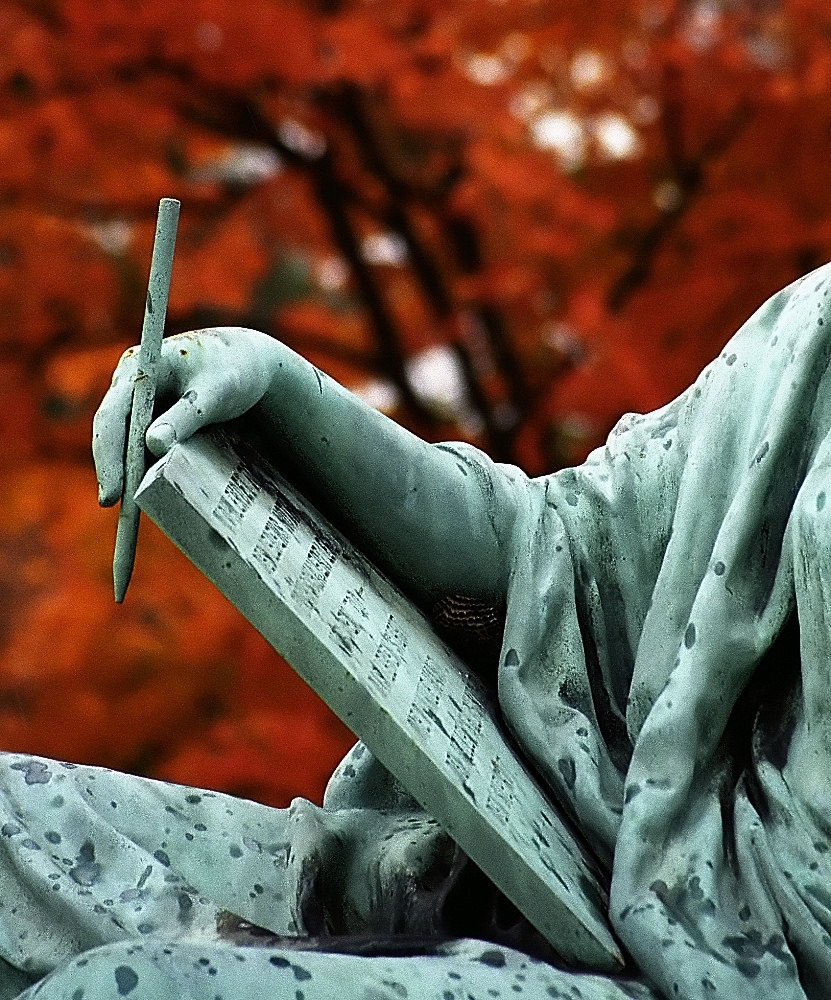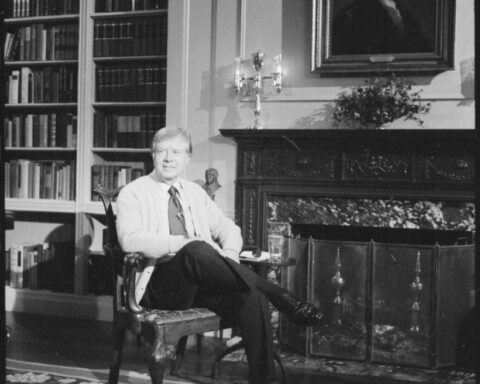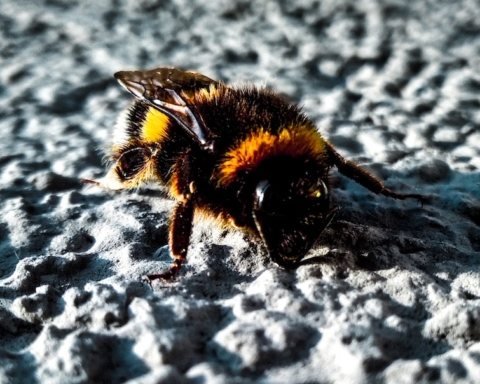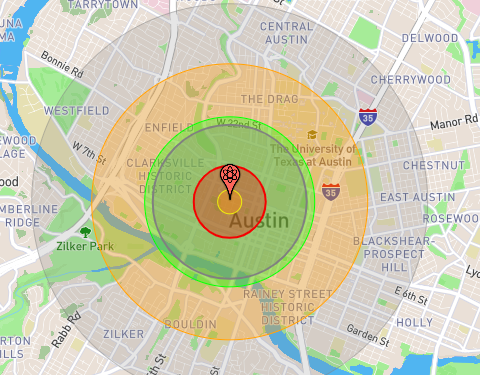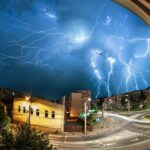A cemetery throngs already
with the natural dead:
pneumonia, sepsis, drowning, household
accident while cooking breakfast, age
and confusion.
What we expect.
When Yankee John Sutherland
put down stakes
on a Spanish land grant,
occupying a portion
of the south bank
of Cibolo Creek,
the murder began.
Before, we buried our dead
with a shovel
or released them back
ash to ash and fragments
of bone to river
or raised them
to the wind as it clamored
against a high mountainside
or the sea. Or we wrapped them tight,
carried them by horseback,
and deposited them in a crevice
to the west
of our camp.
How do we embrace
our beloved, bloodied
as they are,
resting unnaturally
against each other, settled now
on a morgue work-table, stainless
and steel, an alloy designed to be
easy to clean
that might otherwise have bled
back to iron,
gone safely to ground.
Death
has never raised a hand
to her husband, has always been
filled with wisdom as a way
to discipline her children.
The town graveyard
had endured
as a resting place but now
how to bury so many?
By borrowing hearses
and a fund
to sort out the onslaught so
everyone is not
buried at once.
Where were you
when your neighbor,
seething with monumental ire,
bought those weapons
and the slim mechanism
that would convert them
to automatic use, when he attached them
to his rage and emptied
the magazine
that day,
aiming it
at whatever
crossed his path.
Someone is busy
mowing the grass at the gravesite—
a crushing nightmare; most years
so many fewer
graves need
to be dug.
The town’s focus is shifting
to the cemetery, binding us.
This tests
the nerves of the threadbare town.
This death is bigger than the village. The state
has tens of thousands
of cemeteries,
elegantly manicured expanses in large rich cities or
isolated graves in the bleak West Texas Plains.
How do we ease this strain? By placing
those victims who were veterans
in the military cemetery in San Antonio,
the city of the saint
of long lost things.
Some elderly residents of the town who make it a point
to attend every funeral as a way to pay respects
and connect
with neighbors,
are exhausted now.
A simple iron gate
welcomes you.
The cemetery
is close
to the center of town.
The shooter was
methodical.
We brace ourselves
for what comes next
A florist
who enjoys her role in the town
as healer, listening closely
to each occasion that calls for flowers, observes,
This is why
you have to be a rock.
Another townsman, one who tends the cemetery,
neatens what he can, adds,
When the wind blows, it blows
the flowers away.
What will save us
from the wind?
Preparing new
headstones. Digging
new graves. Preparing
to cool the earth.
Shelter
in place.
READ MORE
After Massacre, a Small Texas Cemetery Strains to Bury So Many Dead [New York Times]
A Small Cemetery in Texas [Poets Reading the News]
Norma Smith was born in Detroit, grew up in Fresno, California, and has lived in Oakland since the late 1960s. Her book of poems, HOME REMEDY, was published in 2017 by Nomadic Press.
Photo by David Ohmer entitled “Every Life Has a Story”.

